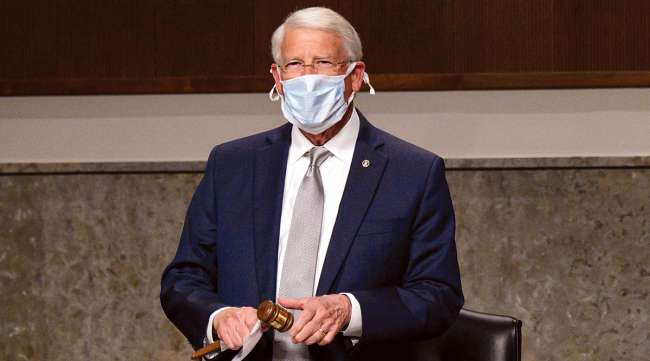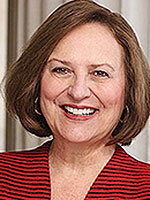Senior Reporter
Senate Chairman Roger Wicker Unveils Rural Transportation Bill

[Stay on top of transportation news: Get TTNews in your inbox.]
Legislation that would establish a pilot program to assist rural communities and municipalities with utilizing U.S. Department of Transportation financing tools recently was introduced by Senate Commerce Committee Chairman Roger Wicker.
The Rural Infrastructure Advancement Act would authorize funding to establish a five-year pilot program designed to help with financial, technical and legal assistance. It would direct the department to proceed with an online presence for receipt of pilot program applications, as well as issue notices regarding each application. And it also would direct the department to post online details about the application process, and the status of submitted applications, according to background from the Commerce Committee.
An eligible entity for the pilot program would be located outside of an urbanized area with a population of more than 150,000, according to the measure. The program would run from fiscal 2021 through fiscal 2025, and its funding would start at $2 million. Funding would increase over the years until it reaches $5.2 million.
RELATED: Elaine Chao Emphasizes Need for Infrastructure, Safety Funds for Rural Areas
A state may not receive more than 20% of funding available under the program during a fiscal year.
“Rural states, like my home state of Mississippi, often face challenges when trying to find the financial resources necessary to fund critical infrastructure projects, such as improving our roads and bridges,” said Wicker (R-Miss.), whose committee has jurisdiction over freight transportation. “This bill would provide professional technical assistance to rural communities interested in utilizing existing financing programs. It is important that we provide these resources to support and advance rural infrastructure.”
This year, several of Wicker’s Senate colleagues met as part of a bipartisan working group to examine concerns specific to rural areas. Members included Republican Sens. Deb Fischer of Nebraska and Mike Rounds of South Dakota, as well as Democratic Sens. Tina Smith of Minnesota and Tammy Baldwin of Wisconsin.

Fischer
“The heartland is not flyover country. It’s full of wonderful, selfless people who help feed and fuel the world,” Fischer said in February. “Those of us who live in rural America already know this, but we need to show Washington that our families, communities, innovators and businesses are worth the investment. I am excited to participate in this bipartisan working group to develop solutions for rural America.”
Said Smith, “At a time when you often only hear about the economic hardship in rural communities, I’ve been inspired by the spirit, resilience and ingenuity of the people I’ve met in rural areas of Minnesota.
“I was so inspired that I decided to create a bipartisan Senate group aimed at highlighting what’s working in rural America, and I’m pleased to be joined by my colleagues and dozens of advocates who share that same goal.”

Chao
At the U.S. Department of Transportation, the Rural Opportunities to Use Transportation for Economic Success, or ROUTES, initiative aims to improve connectivity and safety, as well as access for grant funding and loan programs. Transportation Secretary Elaine Chao has championed efforts to highlight concerns across rural transportation corridors. In March, she explained to a Senate panel, “After a period of great neglect, we are finally beginning to address the needs of rural America.”
Senior DOT officials have delivered similar messages on Capitol Hill. Earlier this year, acting Under Secretary of Transportation for Policy Joel Szabat and Build America Bureau Executive Director Morteza Farajian told senators: “This administration has placed considerable emphasis on underserved communities like those in rural America. We have met and exceeded our obligation regarding rural transportation in the 2015 FAST Act [highway policy law], and we continue pressing forward with new ways to improve rural mobility.”
Want more news? Listen to today's daily briefing:
Subscribe: Apple Podcasts | Spotify | Amazon Alexa | Google Assistant | More




